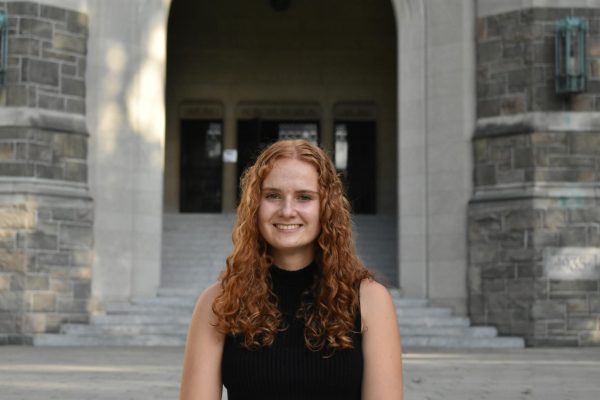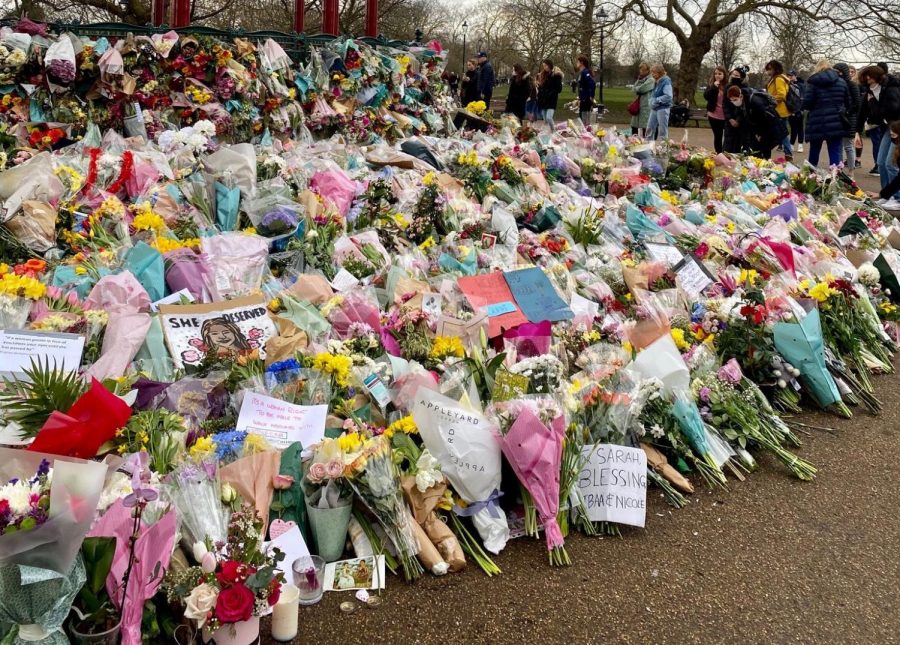Sexual Harassment: A Fordham Perspective
Massive protests and debate erupted around the world this month after the murder of Sarah Everard. Everard was a 33-year-old English woman who went missing on the night of March 3 while walking home alone in London. Her body was found on March 12 and showed signs of sexual assault. Wayne Couzens, a police officer, is charged with her murder, and his plea trial is set for July 9.
The murder of Sarah Everard has sparked renewed conversations about women’s safety, especially in terms of sexual harassment and assault. The timing of her death coincides with International Women’s History Month, which has helped to amplify the conversation surrounding women’s issues.
Reilly Dunne, FCRH ’22, the general coordinator of Fordham’s Women’s Empowerment Club, said it is becoming harder and harder for her to feel outraged at this kind of news.
“Speaking for myself, to be honest, I was not very emotionally affected by reports of [Sarah Everard’s] death,” she said. “Her murder — and the police reaction to vigils/protests — is yet another example of women experiencing violence at the hands of law enforcement. It’s hard not to feel numb.”
Though Everard’s murder happened in the U.K., the issue of sexual harassment and assault involves women from all over the world, including female college students.
During the summer of 2020, the Trump administration made changes to Title IX, which dictates how colleges and universities must handle allegations of sexual harassment and assault. One of the main changes was the narrowed definition of what is considered sexual assault. The accused party in a sexual harassment or assault case is also now entitled to cross-examine their accuser.
Additionally, schools only have the jurisdiction to investigate incidents that happen on campus, in a school sponsored building or during school sponsored events. Since President Joe Biden took office in January, his administration has asked the Department of Education to reexamine these changes, according to Inside Higher Ed.
Despite the limitations presented by the recent changes, members of Fordham’s Committee on Sexual Misconduct (CSM), part of the United Student Government, said Fordham is still committed to seeking justice for victims.
“Although the new Title IX amendments restrict Fordham’s jurisdiction to on-campus incidents, Fordham will still investigate all sexual misconduct cases under the Code of Conduct,” said Lindsey Sullivan, FCRH ’22, co-chair of CSM. “The Committee on Sexual Misconduct was happy to hear about [the Biden Administration’s review of Title IX] because survivors going through the formal reporting process will not be subjected to the potentially re-traumatizing cross-examination portion. Additionally, the university will still investigate off-campus incidents.”
Students at Fordham play a key part in preventing sexual assault on campus, explained Sullivan. One way is by being an active bystander and helping peers who seem to be in uncomfortable or dangerous situations.
“Bystander intervention can take different forms: direct intervention, delegating intervention to someone else (like Public Safety), distracting the people involved or delaying while monitoring how the situation evolves,” said Sullivan.
While bystander involvement is extremely important in preventing situations, it is also important to address the root causes of sexual assault and harrassment, explained Dunne. “I think it’s really easy to default to bystander intervention, and that’s really important, but I think beyond that we really need to stop normalizing predatory behavior and perpetuating rape culture,” she said. “When you go out to parties or bars, it’s hard not to feel like a piece of meat. It’s normal for people to ogle and make comments or touch you without your permission.”
If students feel uncomfortable at any point, they should call Public Safety (718-817-2222) or use the Blue Light system on campus to quickly call for help. Students can use the “Fordham Safety Application” (available on smartphone app stores) to contact Public Safety as well.
“Public Safety deploys a neighborhood patrol vehicle from 8 p.m. to 5 a.m. in the Belmont community in areas where many of our students frequent and live,” said Robert Fitzer, director of Public Safety. “Additionally, a Public Safety guard operates the neighborhood shuttle from 8 p.m. to 5 a.m. The guard remains vigilant and can radio for assistance if they observe a student in an unsafe situation. Public Safety guards are also stationed in front of our off campus housing located in the Belmont community, from 6 p.m. to 6 a.m.”
For cases where no immediate action is needed, students can report sexual misconduct to the university through the Public Safety Online Incident Report. That form can be found through Fordham’s online student portal. Students can also report incidents to the law enforcement outside the university if they would like to, said Fitzer.
There are also many support groups and resources for victims on campus that do not involve law enforcement. Confidential resources on campus include Counseling and Psychological Services, the Health Center and Campus Ministry. The Women’s Empowerment Club also holds a “Sexual Assault Speakout” every semester, said Dunne. The next one is scheduled to occur in the next two weeks and will coincide with CSM’s “Week of Action.”
“Every time I am deeply touched by the strength of the survivors who share their story, and it is incredibly cathartic,” said Dunne. “If you want to share your experiences with harassment or assault in a confidential and supportive environment, our speakout is a great place to do that.”

Isabel Danzis is a senior from Bethesda, Md. She is double majoring in journalism and digital technologies and emerging media. The Ram has been a very...







































































































































































































